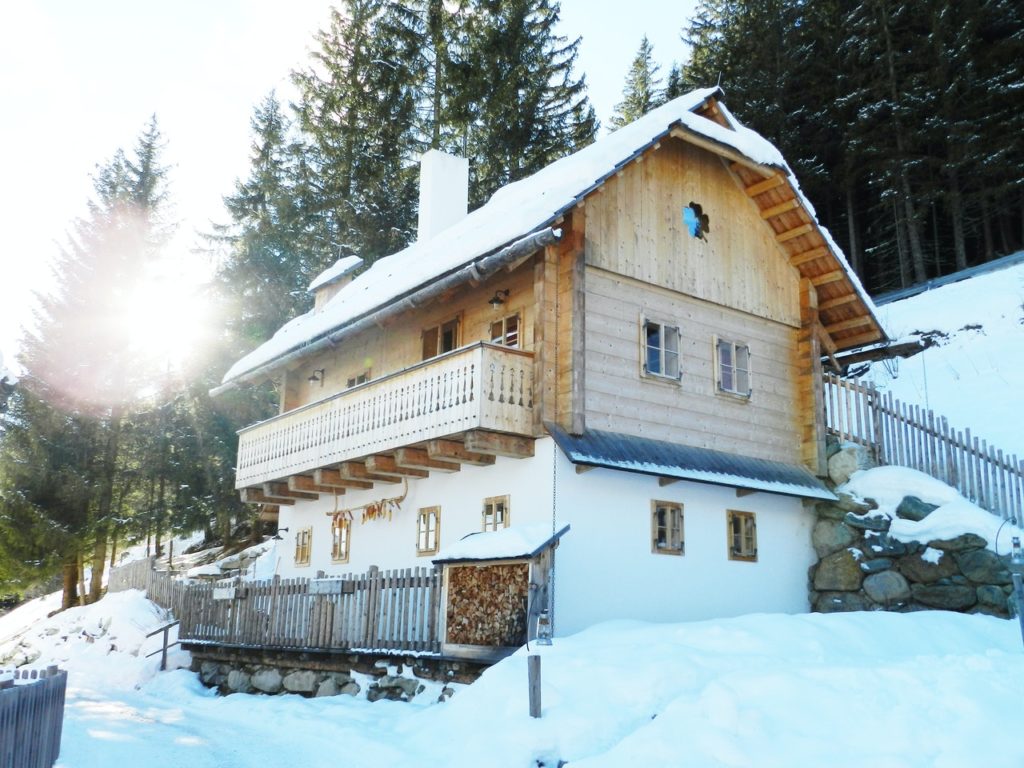Can owners of second homes in Austria get residence permits?

The short answer is no. But having a holiday home in Austria might help make your application for a residence permit a little easier – but you need to be willing to make Austria your primary residence.
Buying holiday property in Austria can be an exceptionally difficult undertaking – not just for non-EU foreigners, but even for Austrians and EU citizens living in Austria itself. In general, only about 15 percent of homes in any given region can be used as second homes.
But what about those people who already own holiday homes in Austria – including perhaps Brits who bought their Austrian second homes some time ago but didn’t take up residence in Austria before the Brexit deadline? Can having that home already entitle you to a residence permit.
Strictly speaking? No.
But what if you’re looking to make Austria your primary residence? Perhaps you bought your second home years ago, are finishing up your working life and looking to make the move to Austria to retire?
If that’s the case, having a second home in Austria may be an advantage and make getting a residence permit easier – if you’re willing to make that home your primary residence.
READ ALSO:
- Can foreigners buy a second home in Austria?
- How can British second home owners spend more than 90 days in Austria?
What qualifies as primary residence under Austrian law?
Austrian authorities hold that your primary residence – wherever it is – should be the “focal point of your personal life". Where you spend most of your time, where you work, where you spend your social life, and where you have your economic relationships are all relevant to determining the location that is “the focal point of your personal life". Having a job in the area would certainly qualify, but so too would having family nearby that you see regularly – like children or grandkids, for example.
If the “focal point of your personal life” could apply to more than one place, Austrian authorities recognise your primary residence as being the home with which you have the "closest association". A quick heads up that they’ll use this criteria sometimes to determine whether someone is improperly listing a second home as their primary residence. Anyone found guilty of doing that is subject to a fine of up to €25,000. This is in place to help prevent people from trying to get around second home caps or getting bogus residence permits.

British second home owners in Austria now have to comply with the EU 90-day rule for third country nationals, unless they apply for residency and intend to stay in Austria most of the time. Photo by Nina Rath on Pexels.
Having your intended primary residence in Austria is a necessary condition of getting a residence permit for Austria anyway.
This is because applicants for an Austrian residence permit have to be able to demonstrate that they intend to spend most of their time – at least 183 days a year – in Austria, in order to be eligible for the permit.
You can also lose your residence permit if you spend more than a certain number of months outside the EEA. In general, this is more than six months at a time or over 10 months in a period of five years. In some cases though, these limits can be extended with permission.
Basically, if you want a residence permit for Austria, you need to be ready to spend most of your time here.
READ ALSO: READER QUESTION: How long can I stay out of Austria and keep my residency rights?
How do you change your second home to your primary residence in Austria?
If you are willing to make the leap and move to Austria to spend most of your time, your second home could help give you a leg up in applying for residency.
That’s because you need to be able to prove that you have accommodation in Austria that’s suitable for you and your family. That’s not enough by itself, as you’ll need proof being able to support yourself as well – for example through a job offer or perhaps international pension payments you’re still eligible to collect in Austria. But you’ll obviously already be able to easily prove you have accommodation through your second home.
You can register your second home as your primary residence through a simple visit to your local authority, or by post. Everyone resident in Austria – including Austrian and EU citizens – has to do this when they move to a new place. The only difference here is that when you visit or write your local authority, instead of registering a new place, you’ll tell them that you’re switching the status of your second home to be that of your primary residence.
What residence permit should I apply for?
That obviously depends on your situation. Switching your second home to your primary residence obviously will already help assure Austrian authorities that you have suitable accommodation that you intend to use. But you’ll still have to meet all the other requirements for your relevant residence permit – whether you’re working or intending to apply for a settlement permit in order to retire.
READ ALSO:
Comments
See Also
Buying holiday property in Austria can be an exceptionally difficult undertaking – not just for non-EU foreigners, but even for Austrians and EU citizens living in Austria itself. In general, only about 15 percent of homes in any given region can be used as second homes.
But what about those people who already own holiday homes in Austria – including perhaps Brits who bought their Austrian second homes some time ago but didn’t take up residence in Austria before the Brexit deadline? Can having that home already entitle you to a residence permit.
Strictly speaking? No.
But what if you’re looking to make Austria your primary residence? Perhaps you bought your second home years ago, are finishing up your working life and looking to make the move to Austria to retire?
If that’s the case, having a second home in Austria may be an advantage and make getting a residence permit easier – if you’re willing to make that home your primary residence.
READ ALSO:
- Can foreigners buy a second home in Austria?
- How can British second home owners spend more than 90 days in Austria?
What qualifies as primary residence under Austrian law?
Austrian authorities hold that your primary residence – wherever it is – should be the “focal point of your personal life". Where you spend most of your time, where you work, where you spend your social life, and where you have your economic relationships are all relevant to determining the location that is “the focal point of your personal life". Having a job in the area would certainly qualify, but so too would having family nearby that you see regularly – like children or grandkids, for example.
If the “focal point of your personal life” could apply to more than one place, Austrian authorities recognise your primary residence as being the home with which you have the "closest association". A quick heads up that they’ll use this criteria sometimes to determine whether someone is improperly listing a second home as their primary residence. Anyone found guilty of doing that is subject to a fine of up to €25,000. This is in place to help prevent people from trying to get around second home caps or getting bogus residence permits.

Having your intended primary residence in Austria is a necessary condition of getting a residence permit for Austria anyway.
This is because applicants for an Austrian residence permit have to be able to demonstrate that they intend to spend most of their time – at least 183 days a year – in Austria, in order to be eligible for the permit.
You can also lose your residence permit if you spend more than a certain number of months outside the EEA. In general, this is more than six months at a time or over 10 months in a period of five years. In some cases though, these limits can be extended with permission.
Basically, if you want a residence permit for Austria, you need to be ready to spend most of your time here.
READ ALSO: READER QUESTION: How long can I stay out of Austria and keep my residency rights?
How do you change your second home to your primary residence in Austria?
If you are willing to make the leap and move to Austria to spend most of your time, your second home could help give you a leg up in applying for residency.
That’s because you need to be able to prove that you have accommodation in Austria that’s suitable for you and your family. That’s not enough by itself, as you’ll need proof being able to support yourself as well – for example through a job offer or perhaps international pension payments you’re still eligible to collect in Austria. But you’ll obviously already be able to easily prove you have accommodation through your second home.
You can register your second home as your primary residence through a simple visit to your local authority, or by post. Everyone resident in Austria – including Austrian and EU citizens – has to do this when they move to a new place. The only difference here is that when you visit or write your local authority, instead of registering a new place, you’ll tell them that you’re switching the status of your second home to be that of your primary residence.
What residence permit should I apply for?
That obviously depends on your situation. Switching your second home to your primary residence obviously will already help assure Austrian authorities that you have suitable accommodation that you intend to use. But you’ll still have to meet all the other requirements for your relevant residence permit – whether you’re working or intending to apply for a settlement permit in order to retire.
READ ALSO:
Join the conversation in our comments section below. Share your own views and experience and if you have a question or suggestion for our journalists then email us at [email protected].
Please keep comments civil, constructive and on topic – and make sure to read our terms of use before getting involved.
Please log in here to leave a comment.